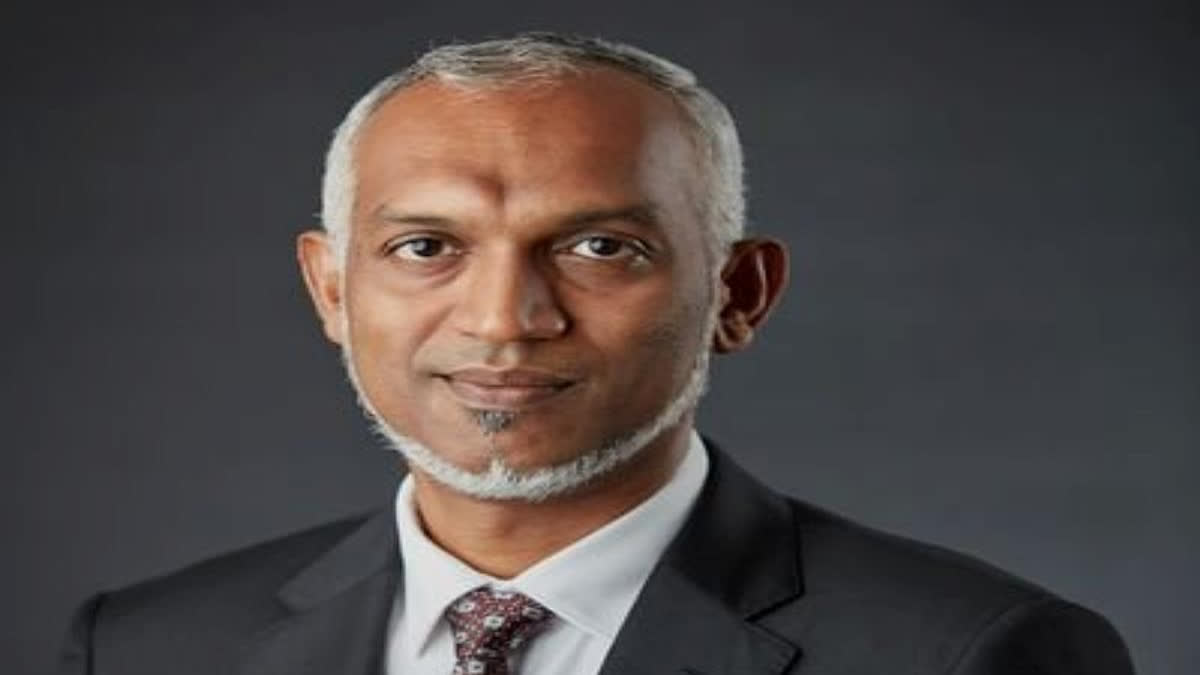New Delhi: He is pro-China. He is a protégé of former pro-China Maldives President Abdulla Yameen. He won the presidential election on an ‘India Out’ campaign plank. These and more labels have been put on new Maldives President Mohamed Muizzu to project him as anti-India. But at the end of it all, it was Prime Minister Narendra Modi that Muizzu met before meeting any Chinese leader. During the meeting held on Friday on the sidelines of COP28 (the 28th Conference of the Parties of the United Nations Framework Convention on Climate Change), the two leaders decided to form a core group to deepen ties between India and the Maldives.
“Both leaders reviewed the wide-ranging bilateral relations between the two countries, including people-to-people linkages, development cooperation, economic relations, climate change and sports,” the External Affairs Ministry said in a statement following the meeting. “The two leaders also discussed ways to further deepen their partnership. In this regard, they agreed to set up a core group.”
Muizzu defeated incumbent Ibrahim Solih, who is known for his ‘India First’ policy, in this year’s presidential election in the Maldives. Muizzu was the joint candidate of the People’s National Congress (PNC) and the Progressive Party of Maldives (PPM). Initially, former President Abdulla Yameen of the PPM, known for his pro-China stance, was nominated as the joint candidate of the PNC and the PPM. But since Yameen is serving an 11-year jail term due to a money laundering case, he became ineligible to contest the election. As a result, Muizzu of the PNC was nominated as the joint PNC-PPM candidate.
As part of New Delhi’s Neighbourhood First Policy, the Maldives is strategically significant to India because of its location in the Indian Ocean. India and the Maldives share ethnic, linguistic, cultural, religious and commercial links steeped in antiquity and enjoy close, cordial and multi-dimensional relations. However, regime instability in the Maldives since 2008 has posed significant challenges to the India-Maldives relationship, particularly in the political and strategic spheres.
Ties between India and the Maldives deteriorated significantly when Yameen served as the President between 2013 and 2018. It was only after Solih came to power in 2018 that ties between New Delhi and Male improved.
Although India continues to be an important partner of the Maldives, New Delhi cannot afford to be complacent over its position and must remain attentive to the developments in the Maldives. India must play a key role within the Indo-Pacific security space to ensure regional security in South Asia and surrounding maritime boundaries. China’s strategic footprint in India’s neighbourhood has increased. The Maldives has emerged as an important ‘pearl’ in China’s “String of Pearls” construct in South Asia.
Both Yameen’s PPM and the PNC had fuelled an ‘India Out’ campaign ahead of this year’s presidential election. The ‘India Out’ campaign was aimed at sparking hatred by creating scepticism about India's investments in the Maldives, the defence partnerships between the two sides, and India’s net security provisions. The campaign had support from a limited population. However, then President Solih, through a decree issued in April 2022, banned the ‘India Out’ campaign citing it as a “threat to national security”. On his part, Solih had campaigned with the slogan of ‘India First’.
After the ‘India Out’ campaign was banned, Muizzu replaced it with the ‘Indian Military Out’ campaign. Following his election, Muizzu made a formal request to New Delhi to remove Indian military personnel present in the Maldives.
There are some 70-odd Indian military personnel present in the Maldives. They are involved in servicing and operating Indian military equipment and aircraft deployed in the Indian Ocean archipelago nation. As of now, there are two Indian Dhruv advanced light helicopters operating in Male. New Delhi has also given a Dornier aircraft to the Maldives National Defence Force (MNDF) on condition that while it will operate under the command and control of the MNDF, its running cost will be borne by India.
